
views
Developing a Sense of Purpose

Figure out what activities leave you energized. There are other types of activities that make us feel alive. These are activities that we look forward to, that we focus on completely, and finish having more energy than when we started. These are also the activities that we give our best energy to and that we try to make the highest quality. Energizing activities are often our hobbies, like working on machines, collecting items, writing, gardening, cooking, and so on. The important thing to remember about these activities is that they require movement on our part—it does not mean watching TV or other screen-watching.
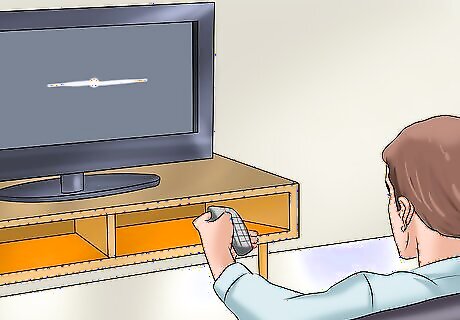
Determine what activities leave you feeling neutral. Some activities we engage in because they don’t require us to do anything, like sitting and watching TV. These activities don’t drain us, but they don’t energize us either. If your life is predominantly full of draining activities, you look forward to these neutral activities so that you don’t have to do anything else. Neutral activities can also include surfing the internet, playing games on your smart phone, and other activities that involve watching screens. These activities don't require brainpower, but they don't leave you feeling refreshed.
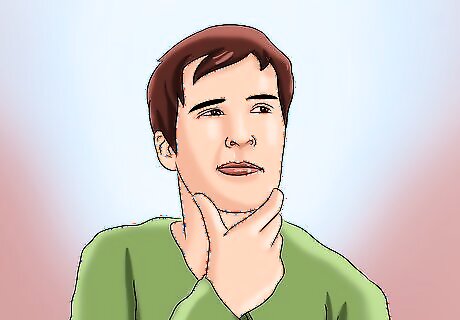
Decide what activities drain you. In order for life to have meaning, it needs to have purpose. Take a look at the activities that you engage in on a daily basis and evaluate how many of those activities make you feel worn out after you finish them. These are also the activities that you dread doing, having to give yourself a pep talk to get going. These activities are also ones that you find yourself rushing through and not caring as much about how well you do them. For example, if you hate your job, each shift can be considered a draining activity.

Create a plan to balance your energizing, neutral and draining activities. Make a chart that displays your energizing, neutral and draining activities. Look at the chart and examine how balanced it is. Do you need to add more energizing activities? To live a meaningful life, the answer is most likely yes. Start by taking small steps toward achieving a better balance among these three activities. Write out a plan with a larger and larger amount of time blocked off for energizing activities every week. Over time, you will stop looking forward to the neutral activities and instead see them as a waste of time. This is because you are slowly developing a new habit and your mind, will, and emotions are being encouraged to grow. You will start to look forward to the energizing activities instead of the neutral ones because your sense of purpose is increasing. You can write this plan on a piece of paper, or just add energizing activities to your weekly planner.
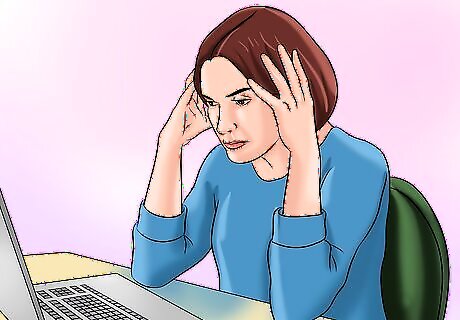
Decide if your career lines up with this plan. You are probably already thinking about your job and whether or not you should keep it if it is a draining activity. The choice is up to you. You have to take stock of things, like how much your family suffers because of your attitude toward work, and if you would be able to find another source of income if you quit. For example, if you have a family who is tired of watching you come home every day without any energy, you may want to think about getting a different, less draining job; cutting back your hours instead of quitting; or finding a new source of income altogether, like starting your own business selling the product you make (or the service you perform) with your energizing activity. You can also consider going back to school while you still have your old job if you feel that a different career would make your life more purposeful and meaningful. The important thing, though, is to find a balance among energizing, neutral, and draining activities.

Be willing to explore new pursuits. Being open-minded about trying new things is also important when considering how much of your life is purposeful and meaningful. Trying something that you have never tried before is the perfect way to discover energizing activities. Doing so can also help you discover a purposeful existence. You can try new activities that are easy to learn about on your own through the internet, like blogging, cooking, and gardening. You can also find an expert in your area who is willing to teach you how to do something new, such as taking pilot lessons or signing up for a community art class.
Becoming More People-Oriented

Take stock of who is in your life. Another important component of living a meaningful life is sharing it with others. Studies show that loneliness increases stress hormones and affects immune and heart functions. Lonely people drink more alcohol and exercise less than people who aren’t lonely. And the truth is that you can be lonely even when you surround yourself with people. The key is to have real connections with others. You can take advantage of the relationships already in your life by taking more of an interest in them.
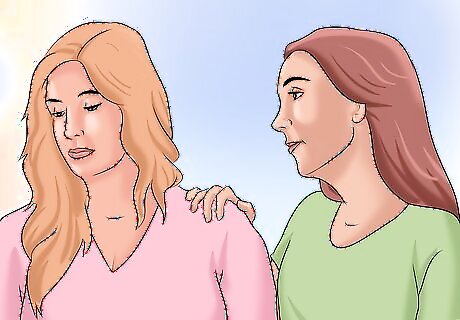
Repair damaged family relationships. Everyone is stressed by discord in their family circles, whether they acknowledge this or not. Part of having a meaningful life is freeing yourself from long-term family drama, whether family members are living or not. For example, your father might have treated you badly and you are still angry at him, even though he died 5 years ago. Forgiving him is important for you, not for him. Take advantage of family members who are still living and repair any broken bonds. This might mean apologizing or extending forgiveness. You might be able to break the ice in a longtime strained relationship with a gesture like doing something for them that you know they need, or giving them a gift you know they love.

Make an effort to deepen friendships. Also take advantage of the friendships in your life. If you have settled into a routine of taking your close friends or spouse for granted, get out of that rut by taking an interest in their lives. Ask them questions about what they do or what they think about things. Such questions develop connections with people, which is what you need to reduce loneliness. If you don’t have any friendships in your life, it may be time to go find some friends. Join a group at your church, attend classes or groups at your community center or gym, or find a group of people who share an interest in your most energizing activities. Don’t just surround yourself with people; make connections with them.
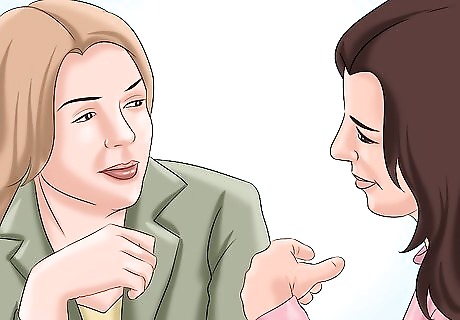
Be a listening ear. Being able to listen well also connects you to other people. You can’t make strong connections to others if you are talking the whole time; that is what therapists are for (and even then, you should to listen to their advice). Listening helps you build trust with another person because it shows that you support them.
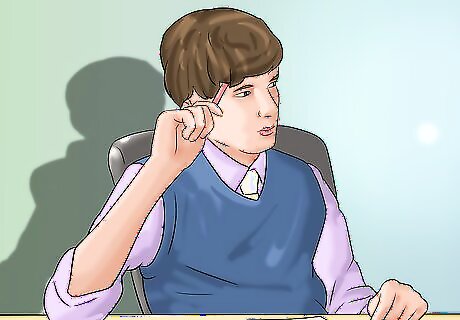
Join groups or classes. Find people in groups or classes in your community where you can make real connections with people. For example, many community centers have weekly classes open to the public where you can connect with others on topics anywhere from sewing to cooking to karate. And local gyms have a smorgasbord of athletic classes—things like spinning, kickboxing, yoga, water aerobics, and more are usually on the daily list. You may be able to find a group interested in the same things that you are at the community center or on websites like MeetUp.com, but if you don’t, you can start one yourself.
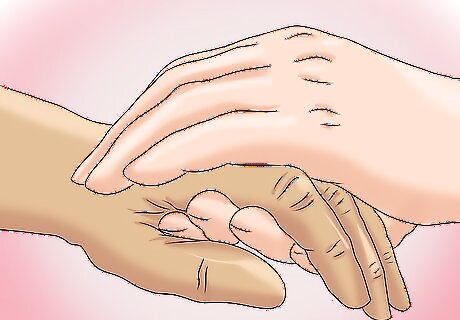
Donate your time. Volunteering is another way to add meaning to your life. It not only is a good place to meet like-minded people to increase your social connections, it is actually good for your body and mind. Volunteering is known to boost self-confidence, fight depression, give you a sense of purpose, and even keep you in physical health. Most cities have volunteering websites. For example, in Nashville, Tennessee, in the U.S., there is an organization called Hands on Nashville that provides sign-up sheets for nearly all the organizations in that city that need volunteers. You can also go to places that look like they take volunteers, such as soup kitchens, church feeding events, and so on.

Find people who accept you for who you are. Pay attention to the relationships in your life. Even though you forgive an estranged family member or friend, if they constantly make fun of or criticize you, maybe it’s better that you peaceably go your separate ways, at least in daily life. Likewise, if you are codependent with a family member or friend, that relationship is probably toxic and needs to be cut off or at least adjusted. You are looking for relationships that encourage and energize your life, just like you are looking for activities that do the same. You can identify co-dependent relationships by things like a fixation on rescuing them, constantly giving and rarely receiving, fear of being abandoned, and the capacity to do anything to hold onto the relationship. Such behavior is not healthy in a relationship, and will certainly drain purpose and meaning from your life. On the other hand, people who encourage you in your interests and whom you feel energized after leaving—and greatly look forward to seeing, just like the energizing activities—are people you want in your life. They will give your life meaning.
Expressing Yourself
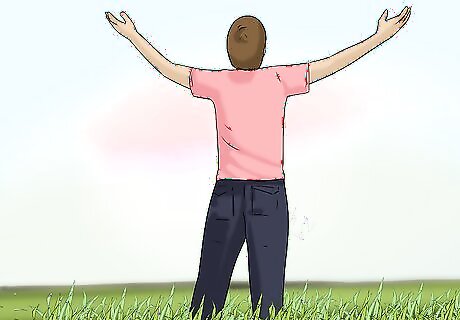
Be willing to be true to yourself. You also need freedom to express yourself if your life is going to be full of meaning and purpose. This means discovering your passions, your preferences, and then doing them without being afraid of rejection. You will find out what your passions are when you rank your daily activities by how energizing they are in the first part (above), but you can also find your passions by following your curiosity and stopping work on things that aren’t energizing to you. Even if you don’t gravitate toward writing or drawing, it is useful to explore these mediums so that you can create a visual of your thoughts on paper or canvas (or digitally, if you find that the computer medium comes more easily).

Work on overcoming fears. To express yourself, you have to resist giving in to a fear of rejection or judgement. You’ll need to face these fears so that you can live a meaningful life that is free from the dictates of others. One thing you could do is play the internet card game Rejection Therapy, an amateur version of exposure therapy that trains you to ask strangers for things you know they will say no to. The purpose is to desensitize your mind to rejection so that you aren’t afraid of it anymore. Or you can just dive right in to your most energizing activities and refuse to obey the negative voices of your friends and family.
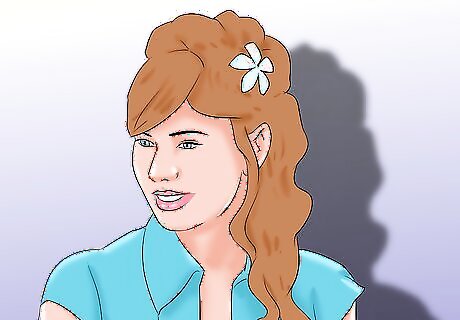
Choose a way to express yourself. Once you know what you want to do and are choosing not to be afraid of expressing it, you need to find a way to express yourself. This can be through art, through writing, through producing a product, even though wearing different clothes. The important thing is to be who you know you are, not what others suggest.

Express yourself more often. Now that you know how you want to express yourself, do so more and more frequently, until you are comfortable expressing yourself all the time. It might take weeks or months, but eventually you will stop being afraid of being yourself, no matter who you are with. Just be sure that you aren’t causing harm to others as you express yourself. For example, your parents or your kids might be embarrassed of you, but that is ok; but ignoring the needs of your family or friends to pursue your interests is selfish and mean.




















Comments
0 comment